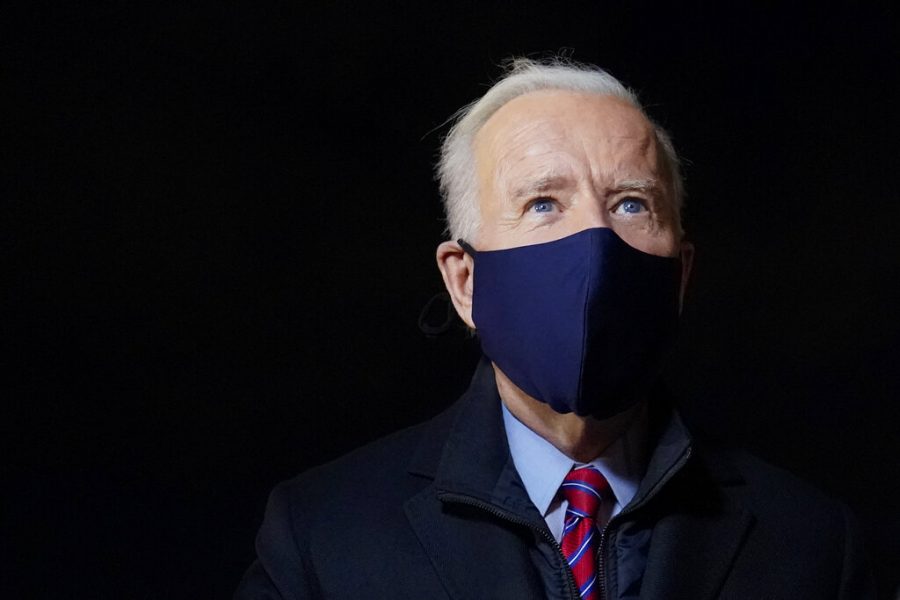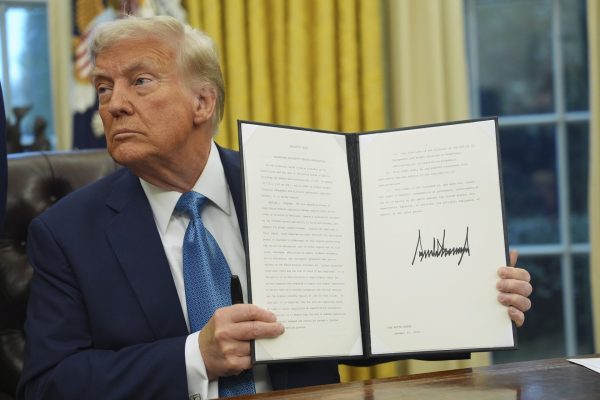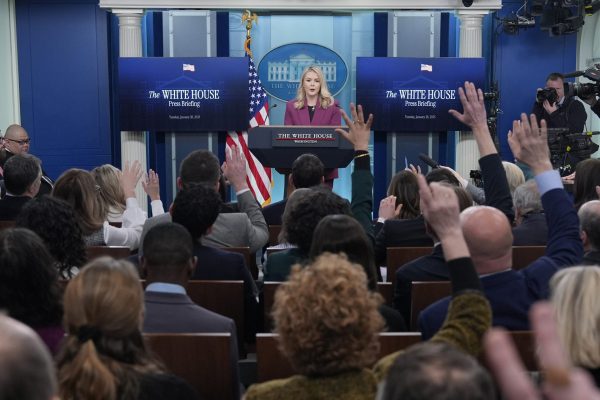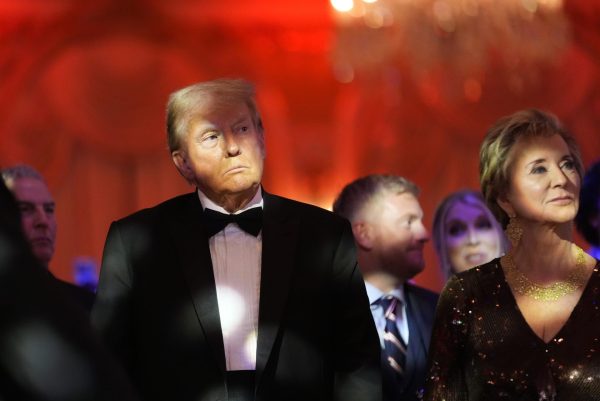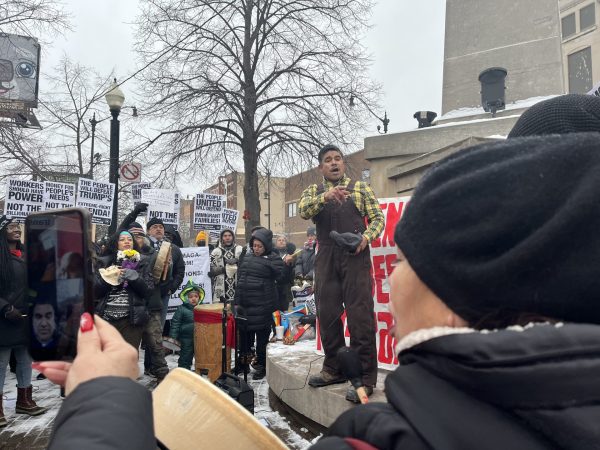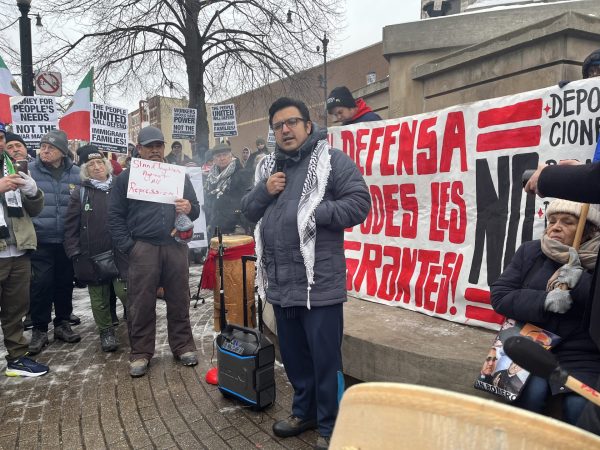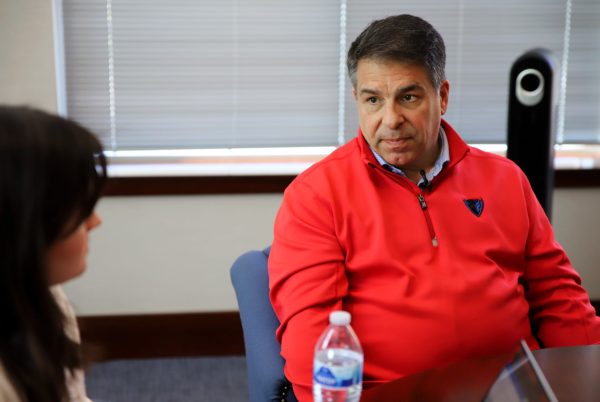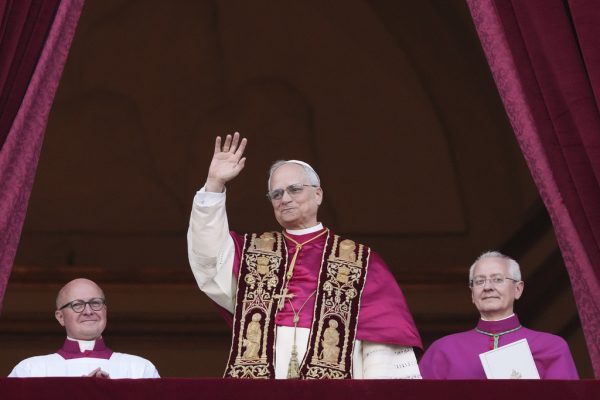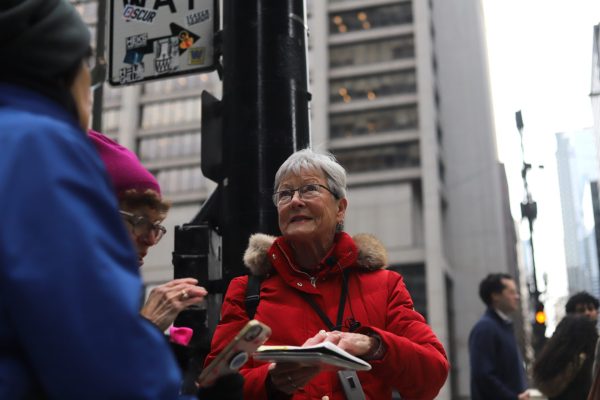Biden pandemic response strategy aims to rebuild public trust, increase vaccine rollout
President Joe Biden speaks with reporters after stepping off Air Force One at New Castle Airport in New Castle, Del., Friday, Feb. 5, 2021. Biden is spending the weekend at his home in Delaware. (AP Photo/Patrick Semansky)
President Joe Biden announced Thursday during remarks at the National Institutes of Health that he finalized deals to buy 200 million more Covid-19 vaccine doses from Pfizer and Moderna by the end of July.
This action moves the Biden administration closer to achieving its promise of having all Americans vaccinated by mid-summer.
“We’ve now purchased enough vaccine supplies to vaccinate all Americans,” Biden said. “Now we’re working to get those vaccines into the arms of millions of people.”
Since the onset of the Covid-19 pandemic, Biden has promised throughout his campaign to prioritize public health. The president’s pandemic response strategy, announced on Jan. 21, details a seven-step plan to restore public trust and launch an effective vaccine campaign.
— NIH (@NIH) February 11, 2021
Anthony LoSasso, an economics professor at DePaul, said that Biden’s emphasis on self-protection and Covid restrictions provides more reassurance for those nervous to be in public spaces.
“He’s certainly been much more strident about self-protection and, you know, encouraging mask use in all public, all sorts of transportation sites, all public buildings, all of that, it’s all mandatory,” LoSasso said.
In the opening letter of Biden’s pandemic response strategy, the president expresses his plans to restore public trust within his vaccine plan and to create unity for Americans against the fight of coronavirus.
“There are moments in history when more is asked of us as Americans. We are in that moment now and history will measure whether we were up to a task,” Biden said in the letter.
As part of the Biden administration’s pandemic response, their strategy includes speeding up the production of Covid-19 supplies, increasing testing capacity and implementing a mask mandate. Biden has also proposed a $1.9 trillion Covid-19 relief bill, half of which has been pushed through a House Committee on Thursday.
Blake Fondren, a junior at DePaul, says that he is somewhat confident in the Biden administration’s response strategy.
“I think the idea of restoring trust in the people is a good idea and attempting to enforce restrictions is a good idea. But it’s not going to change the mindset of those who are already against the mask mandates and restrictions,” Fondren said. “Sadly people are going to do what they want regardless of rules and regulations put in place.”
According to data from the Pew Research Center, 47 percent of Americans are not concerned that they will get coronavirus and end up hospitalized. Though, according to a Pew Research poll conducted in December, 60 percent of Americans said they would probably or definitely get a vaccine for coronavirus.
Craig Klugman, a health science professor at DePaul, says that one of the most important things the Biden administration can do in their response to the pandemic is listen to scientists and researchers.
“My family lives in Florida and the only people there who can get vaccines are people over 65. Even health care workers giving the injections have not qualified to get it yet,” Klugman said. “I am hopeful with the release of the Biden plan and the executive orders he has signed that we can have an actual national strategy because what we have had is chaos, and states and cities competing with each other for resources.”
Biden has expressed that this is something he will prioritize in his administration, as the Trump administration has attempted to inhibit the influence of scientists and researchers, and sometimes pressured researchers not to speak publicly.
Klugman also says that he would like to see a more coherent outline for vaccine distribution. Cities and states all have separate allocation plans and residents have to check the plans for their specific city, state, or county in order to access information on when they could be vaccinated.


